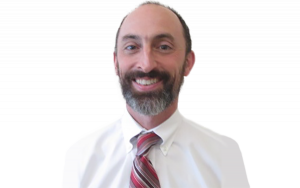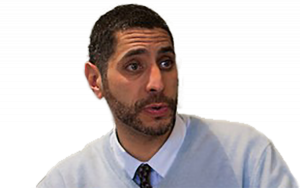Where did your 9th-grade English teacher get her teaching degree? If she or he was like the overwhelming majority of educators in America, it was almost certainly from a university-affiliated program. (In the U.S., schools of education account for a quarter of all master’s degrees conferred and one in 12 bachelor’s diplomas earned.) That fact may be about to change — the result of a provision included in the new federal education law, the Every Student Succeeds Act, which allows states to use Title II federal dollars to sponsor independent teacher preparation programs.
Freestanding graduate schools of education have been operating in Massachusetts for some time thanks to a policy that allows any institution of higher education to open its doors, provided it meets the right criteria. Based on our experience running one such program, we think Massachusetts offers key lessons for how other states should be thinking about how new programs — termed “academies” in the legislation — are accredited and reviewed.
For starters, the Massachusetts Department of Elementary and Secondary Education’s approach has fostered an environment where independent teacher preparation programs can focus on training educators for specific contexts, in a way traditional teacher preparation does not.
Our program at the Sposato Graduate School of Education, for example, focuses exclusively on training teachers to work in schools with high percentages of low-income students. In practice, that context-specific focus informs everything we do, from who we hire as faculty (teachers and leaders with experience in high-need schools) to the student-teaching experience (our candidates are in a school from day one of our two-year program, where they receive near-constant coaching from master teachers). In traditional teacher preparation programs, most students spend only a few months in a real, live classroom.
Massachusetts state education officials also evaluate independent teacher preparation programs on outcomes the teachers trained by these programs actually deliver. This is different from most other states in the country, and it’s more rigorous than how teacher education programs have historically been held to account.
More programs that challenge conventions about how teachers should be prepared for the classroom is a welcome innovation
With a focus on outcomes that measure classroom readiness, the Commonwealth is sending a strong signal that not every student who wants to be a teacher should get to the finish line. Wouldn’t you be wary of any graduate school that boasted a 100 percent graduation rate? Indeed, only two-thirds of the students who enter Sposato GSE actually earn what we call a Master’s in Effective Teaching (MET).
Through this work, the education department is also bridging the yawning gap between how students are evaluated (research papers, hours of student teaching logged, in-class participation) and how those same students are evaluated a year or two later — now as full-blown in-service teachers (on a rubric, student surveys, regular observation).
By setting high standards and holding programs accountable, the Massachusetts system identifies programs that are preparing teachers well for the rigors of the classroom, while weeding out the ones that don’t. We’ve welcomed the added scrutiny, in exchange for greater autonomy to test new ideas.
Critics of the new policy, including the Coalition for Teacher Quality, have expressed concern about how these new programs would be regulated. They worry they may be less rigorous than traditional teacher education, offering a “short-cut” to the classroom, that could undermine university-based programs.
These concerns are understandable, particularly as evidence mounts that teachers are the single biggest driver of student achievement. But done right, new takes on teacher education can contribute to solving some of the larger questions about teacher preparation, evaluation, and ultimately, quality.
There’s innovative work happening around teacher preparation by freestanding programs and those affiliated with universities. MIT is partnering with Arthur Levine, the former president of Columbia’s Teachers College, to create a competency-based program for STEM teachers that focuses on measurable skills related to teaching, as opposed to traditional classes and credits.
High Tech High, in San Diego, trains their graduate students to work in a context-specific environment: project-based learning, integrated with technology. And the new Teacher Fellows program at Harvard will prepare teachers for urban schools by shifting resources from on-campus coursework to on-the-job mentoring.
Not every person with an idea for how to train teachers should be permitted to set up a new teacher academy. But more programs that challenge existing conventions about how teachers should be educated and prepared for the classroom is a welcome and needed innovation — as long as they are required to meet high standards for accreditation and accountability.
Get stories like these delivered straight to your inbox. Sign up for The 74 Newsletter


;)

